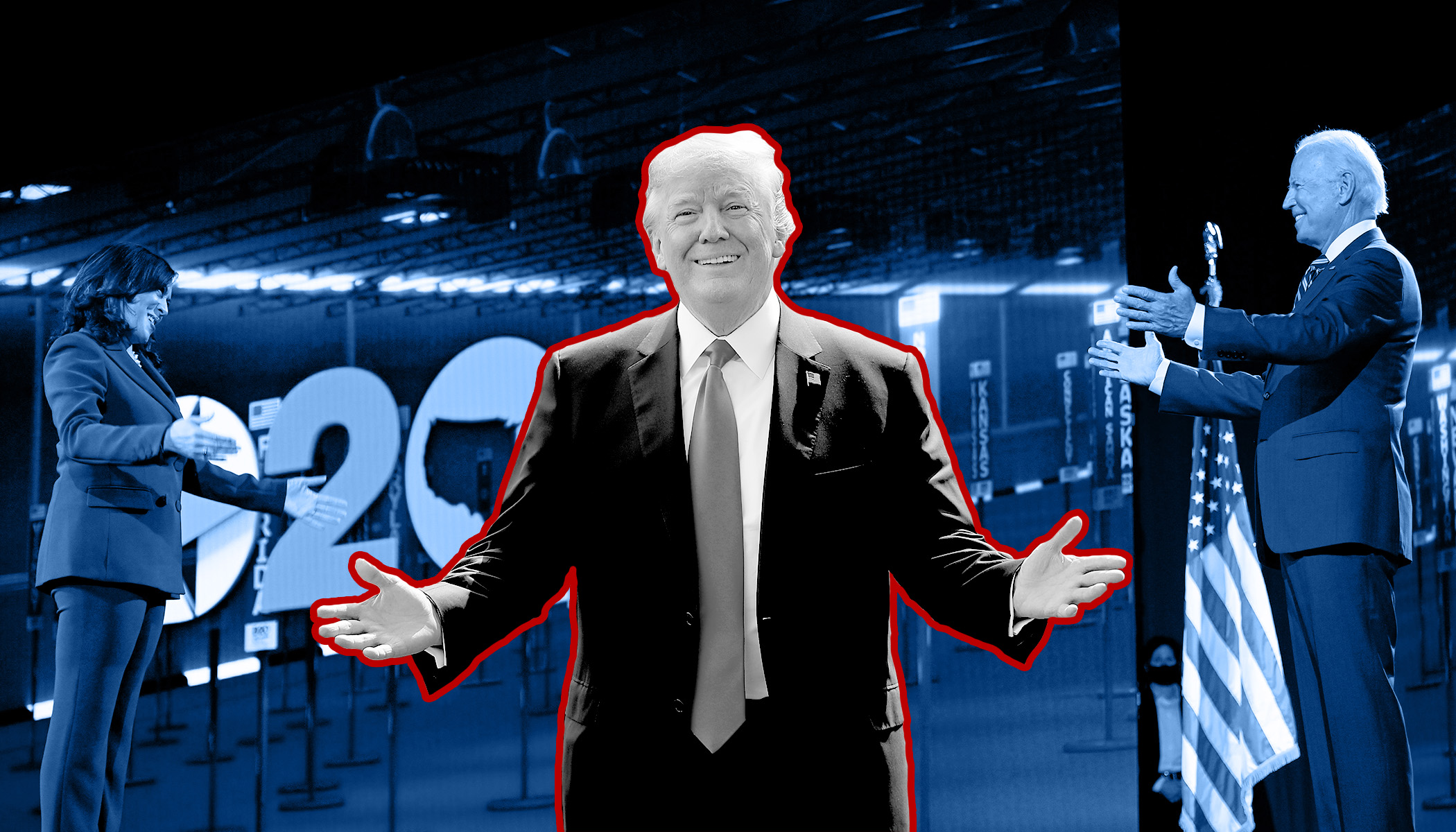Trump's base turnout strategy is also a base expansion strategy


A free daily email with the biggest news stories of the day – and the best features from TheWeek.com
You are now subscribed
Your newsletter sign-up was successful
If there's one thing mainstream-media pundits agree on, it's that Donald Trump's GOP has given up trying to appeal to anyone outside of the president's base. In an earlier era of American politics, one would expect the Republican nominee to pivot toward the center of the ideological spectrum in the general election. Instead, the Republican National Convention spent its opening night following a base-mobilization strategy in which speakers and videos spoke to the keenest fears of Trump voters. And this, we are told, is a sign of a dysfunctional campaign and party that's setting itself up for a big loss in November.
But there's another possibility. What if, instead of adjusting his message to appeal to people who are currently inclined to vote for Joe Biden, Trump is trying to persuade these voters to change their minds and come to him? What if, rather than treating voter preferences as static and adjusting his message to match them, Trump is trying to convince voters that their current preferences are out of sync with reality?
What if Trump is trying to expand his base not by moderating his positions but by radicalizing the electorate?
The Week
Escape your echo chamber. Get the facts behind the news, plus analysis from multiple perspectives.

Sign up for The Week's Free Newsletters
From our morning news briefing to a weekly Good News Newsletter, get the best of The Week delivered directly to your inbox.
From our morning news briefing to a weekly Good News Newsletter, get the best of The Week delivered directly to your inbox.
That's what the relentlessly ominous message of Monday night was all about. Trump is telling a story that is very scary but that makes perfect sense of rapidly accumulating accounts of riots and violent crime in cities across the country: Urban progressivism has wrecked Seattle and Chicago and Denver and New York — and if Joe Biden and Kamala Harris take over in January, the chaos and violence will come right to your doorstep. If you give them a chance to govern, your neighborhood will soon look just like Portland.
We don't know yet if the message will work. Reality is, of course, more complicated, and Trump is doing plenty to inflame the tensions himself. But we should recognize the attempt for what it is: An effort to turn a larger share of the electorate into Trump voters.
A free daily email with the biggest news stories of the day – and the best features from TheWeek.com
Damon Linker is a senior correspondent at TheWeek.com. He is also a former contributing editor at The New Republic and the author of The Theocons and The Religious Test.
-
 Sepsis ‘breakthrough’: the world’s first targeted treatment?
Sepsis ‘breakthrough’: the world’s first targeted treatment?The Explainer New drug could reverse effects of sepsis, rather than trying to treat infection with antibiotics
-
 James Van Der Beek obituary: fresh-faced Dawson’s Creek star
James Van Der Beek obituary: fresh-faced Dawson’s Creek starIn The Spotlight Van Der Beek fronted one of the most successful teen dramas of the 90s – but his Dawson fame proved a double-edged sword
-
 Is Andrew’s arrest the end for the monarchy?
Is Andrew’s arrest the end for the monarchy?Today's Big Question The King has distanced the royal family from his disgraced brother but critics claim a ‘fit of revolutionary disgust’ could still wipe them out
-
 Big-time money squabbles: the conflict over California’s proposed billionaire tax
Big-time money squabbles: the conflict over California’s proposed billionaire taxTalking Points Californians worth more than $1.1 billion would pay a one-time 5% tax
-
 Did Alex Pretti’s killing open a GOP rift on guns?
Did Alex Pretti’s killing open a GOP rift on guns?Talking Points Second Amendment groups push back on the White House narrative
-
 Washington grapples with ICE’s growing footprint — and future
Washington grapples with ICE’s growing footprint — and futureTALKING POINTS The deadly provocations of federal officers in Minnesota have put ICE back in the national spotlight
-
 Trump’s Greenland ambitions push NATO to the edge
Trump’s Greenland ambitions push NATO to the edgeTalking Points The military alliance is facing its worst-ever crisis
-
 Why is Trump threatening defense firms?
Why is Trump threatening defense firms?Talking Points CEO pay and stock buybacks will be restricted
-
 The billionaires’ wealth tax: a catastrophe for California?
The billionaires’ wealth tax: a catastrophe for California?Talking Point Peter Thiel and Larry Page preparing to change state residency
-
 Trump considers giving Ukraine a security guarantee
Trump considers giving Ukraine a security guaranteeTalking Points Zelenskyy says it is a requirement for peace. Will Putin go along?
-
 Bari Weiss’ ‘60 Minutes’ scandal is about more than one report
Bari Weiss’ ‘60 Minutes’ scandal is about more than one reportIN THE SPOTLIGHT By blocking an approved segment on a controversial prison holding US deportees in El Salvador, the editor-in-chief of CBS News has become the main story
